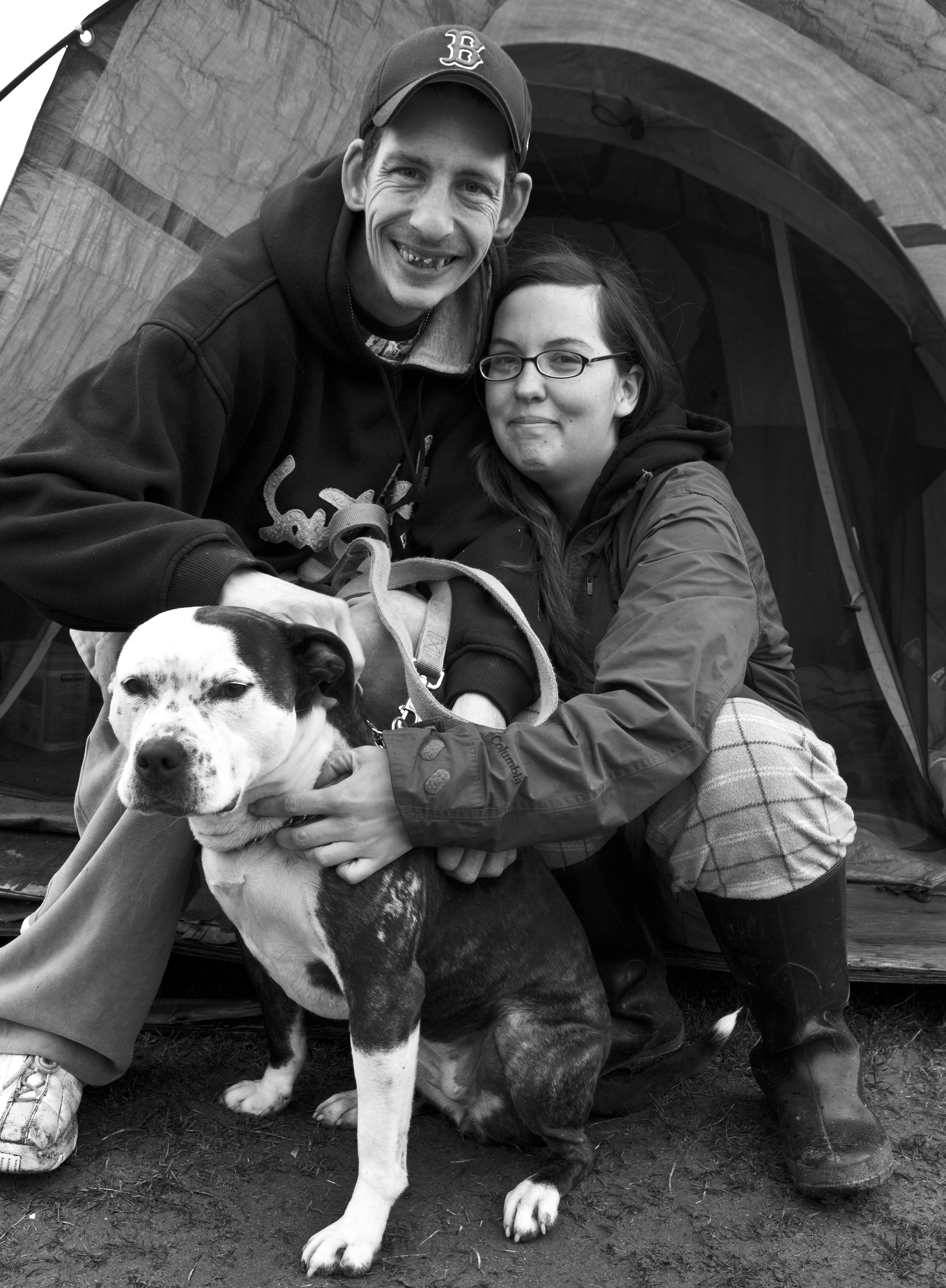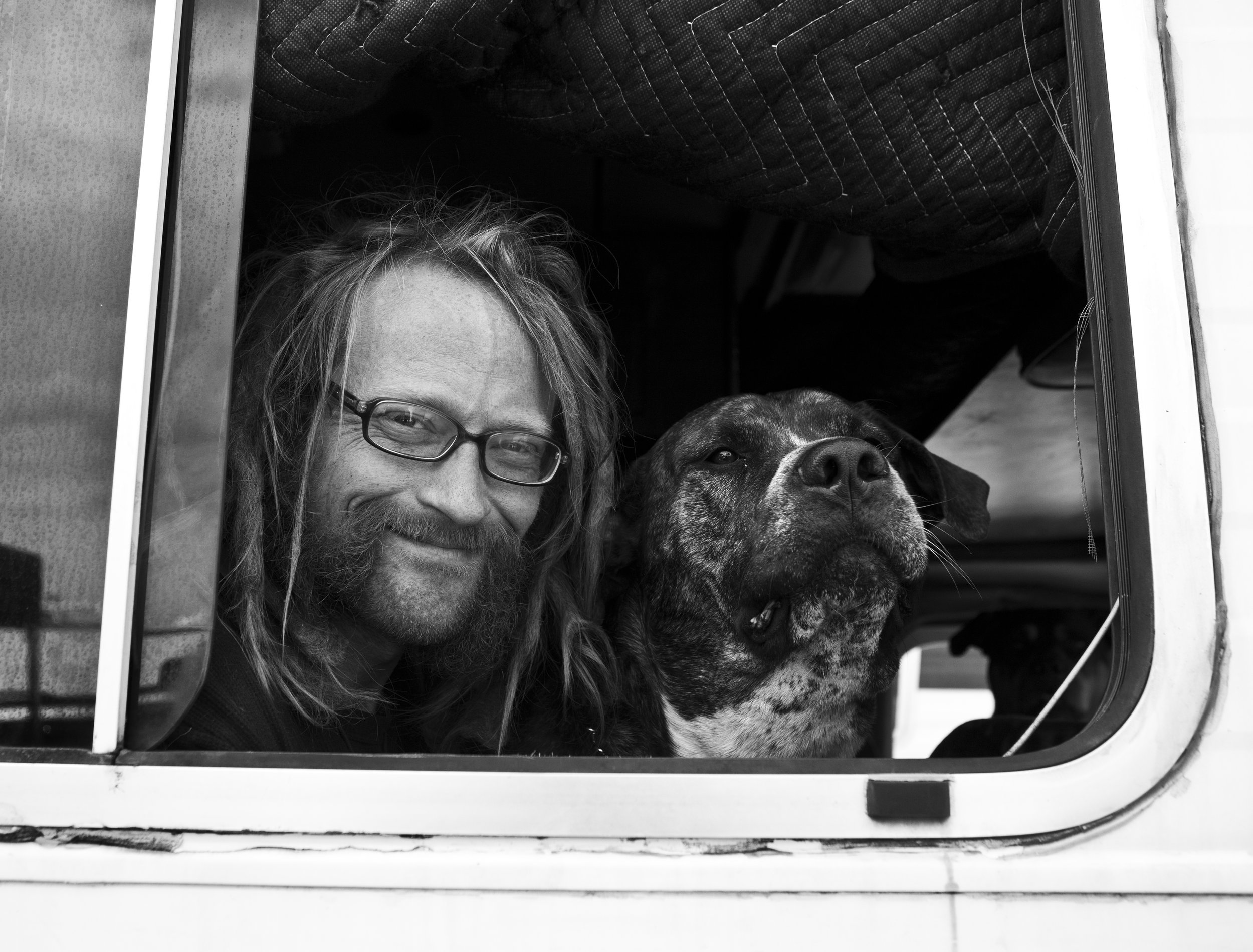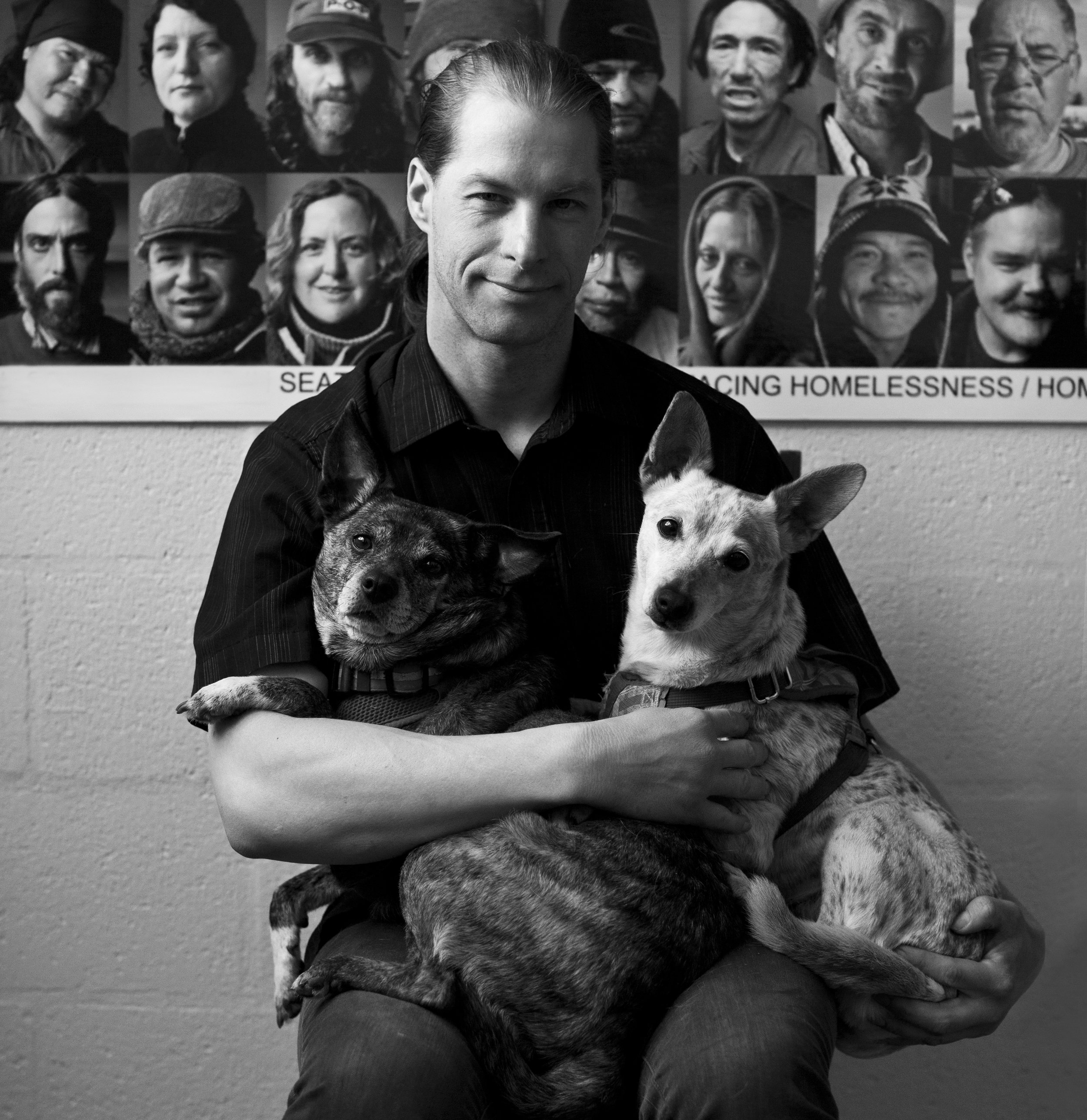EP008: A dog’s best friend
Transcript available here.
Immediate need: You can help Seattle Dogs Homeless Program with their veterinary bills. The Greenwood Animal Hospital that handles Seattle Dogs referrals will accept funds by phone or check. Be sure to mention that the payment is for Seattle Dogs Homeless Program and that you heard about it on the YKMN podcast.
Greenwood Animal Hospital - 206-528-3838
RE: Seattle Dogs
10000 Aurora N,
Seattle WA 98133
“And I know for us, we had people all the time coming up saying you need to surrender. You need to take your animals to the shelter. They can provide, you know, a better home for them. Especially you don't even have one right now. That fear. I mean, it's scary when you know you have nothing. And you've got this precious dog that you just love so much. And here's some stranger coming up, threatening you or accusing you or telling you this is what you need to do the thought of losing one of my dogs like that or all of them. I mean, I can't express in words how frightening it just fear I was scared all the time that someone was going to come and take him away and say, you know, I was a bad person for having them out there.” - Lora Troncoso of Seattle Dogs Homeless Program
I want to begin with what I think is a truism. And that is, “We all have issues.” For some, the issues are small and containable, while for others, the issues are big and overwhelming. Truth is though, we all struggle with something, or, somethings. The problem with the bigger personal issues, is that they can spill out into the public eye, out behind closed doors. Those are really tough moments for folks, trying to navigate not just their own feelings, but now also the feelings and judgments of others, people they might not even know. We all get this. We learned from an early age that you don’t air your dirty laundry in public. People, and entire families, go to great lengths to hide their issues, to make everything look ‘normal’.
Now consider what this means for those struggling through homelessness. Where every aspect of their personal life is on full-display. There are no closed doors to keep issues quiet behind. In this environment, the homeless receive a nearly constant stream of judgment from those that don’t know them or their circumstances.
Why don't they pick up their garbage?
Nevermind that there is nowhere to put it.
If they can afford a cell phone, why are they begging for money?
Nevermind that the phone can be their only real connection to family, friends, and services.
How can they take care of a dog when they can’t even take care of themself?
This last question is one we want to dive into with all of you.
Lora (pregnant at 16) and her sister Lisa standing beside her in December 1983
Today we are speaking with Lora Troncoso. She founded the Seattle Dogs Homeless Program here in Seattle and has helped thousands of dogs and cats, as well as their owners, who are living homeless. Lora is uniquely qualified to offer insight on this topic as she experienced homelessness as a child and then again as an adult. Now being housed, she spends all of her time doing street-outreach. She is an extremely thoughtful and knowledgeable person and we’re very happy she agreed to speak with us!
Excerpts from episode
YKMN: For those that see themselves as animal lovers, for many there is an immediate negative reaction when seeing folks living on the streets with their pet. This is especially so when drugs are involved. I asked Lora her thoughts on the part animals play for those addicted to drugs.
Lora Troncoso and her daughter
Lora: While we do see a lot of drug addiction, sadly, and we're dealing with that, and trying to reach as many people as we can, we know that there are people that are drug addicted or alcohol addicted. But they're still able to have a relationship with their animal and feel and receive love. If you took away the animal, just because someone is using drugs, you're making the wrong choice, because they're not going to want to get better, and they're not going to feel like they're worthy of getting better. Because you just took away the only thing that actually keeps them going, it's not the needle and spoon. It's that animal, it's there to love. And a lot of people don't understand that. And, and I try to tell people as well that being involved with rescue, I sadly see it even more so. But majority of our cases for abuse come from people that are housed.
YKMN: The people I've met outside that have had pets, I see a relationship that is tighter than typically I see with owners that are housed. And that's not to say that there aren't amazing homeowners that just have these beautiful relationships with their dogs. But I what I do see a lot of is dogs in the backyard and a chain link fence owner goes off to work on 10 hours comes back has has a few hours, and then goes asleep and repeats the process versus people that are outside or with her animals 24/7 And I think about the emotional psychology of that. And where would the dog rather be?
Lora: Exactly. And it's sad because people not all people but some people want to be so quick to judge the person who doesn't have the curtains to close. But then their neighbor who's been you know, chaining the dog outside with no shelter, no, you know, water and stuff. They've sat there and watch that shit go on for years and done nothing until somebody else posted about it. Yeah, that's negative stereotype against homelessness. Yeah, and it happens a lot.
Have you always been a dog lover? “Always. I've always I don't remember ever a time in my life not having a dog. My grandparents had dogs. My mom had dogs. And these dogs Oh, they've they've saved my life. You know, then there's been a couple of times where I just really wanted to kill myself and and then I think no, I can't because who's gonna take care of my dogs? You know, I mean, nobody can take care of them like me. I just I love my dogs. I mean, I've I've had her she's she's six and a half. I've had her since she was born. I picked her out the day she was born.” - Melissa in November 2022
Lora has been taking care of my dogs. Yeah. I mean, she's like the silent partner with helping me feed my dogs. If something happens, take him to the vet. Yeah, she does all that. And then she gets online and she gets she, you know, she does a lot. He's trying to get along. Yeah. And then she gets people to donate, you know, helps her doing it. But it's not a whole lot of people. But, you know, the donation that goes to her she's like a nonprofit. She don't get no money. Yeah. And then she, a lot of times she pays out of your pocket. - Ken in November 2022
Lora Troncoso, always the animal lover
YKMN: What would you say to, to a person that was sitting here with us, or listening to this podcast that that loves dogs loves animals, but is really bothered when they see a dog next to somebody that's that's flying a sign or outside of a tent? Or, you know, what would you say to them? How would you appeal to the feelings that they're having in that moment?
Lora: Well, I think first for me is, you know, stop and talk to him. Ask Are you going to come across somebody who's an asked to you sure that you come across that in everyday life, so why not take a chance? Keep you know, keep your distance because you never know what a dog is like when they're out there. But, you know, stop and find out. Don't just take a picture and post and send the world crashing at their feet because you're causing us Seattle dogs issues, and your causing the person issues when it might not be what you're imagining in your mind and you haven't done anything to better the situation.
Selection of Rex’s photographs from the past 12 years of folks living outside with their animals.
































































